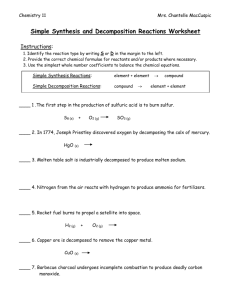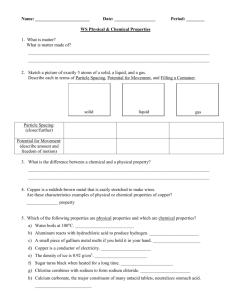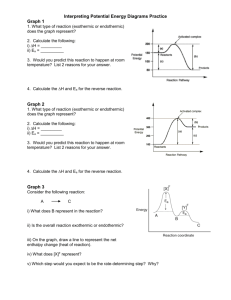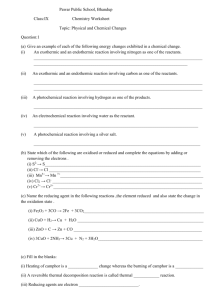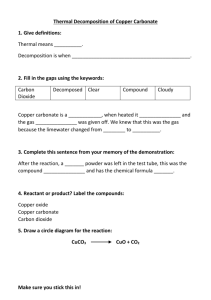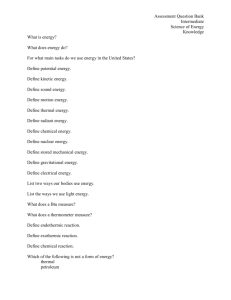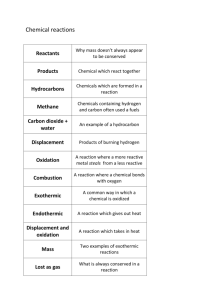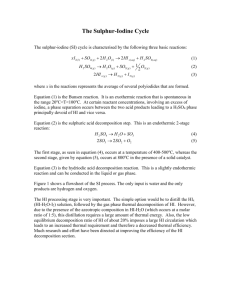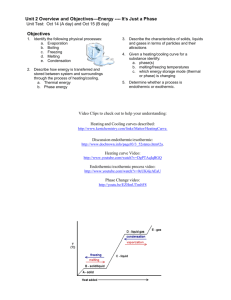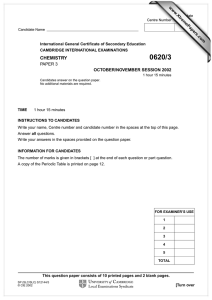Chemical Reactions
advertisement
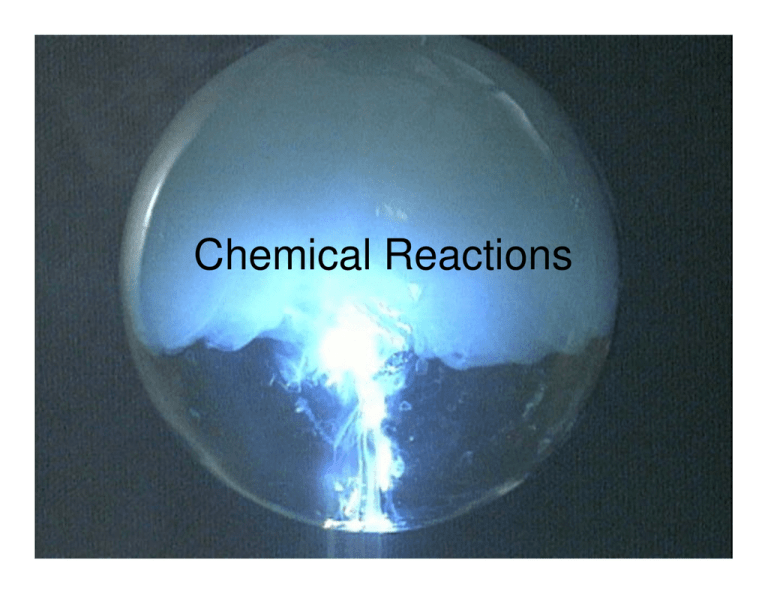
Chemical Reactions Chemical Reactions A chemical reaction is when a ___ substance has been made. The chemicals that react are called ________. A chemical reaction may have occurred if there is a colour ______, a change in __________ or if _____ is observed ( this is because a ___ is produced). reactants gas change temperature fizzing new Chemical or Physical Rusting Chemical Ice melting Physical Adding water to orange squash Physical Burning natural gas Chemical Making glass Chemical Candle wax melting Physical Types of chemical reactions • Neutralisation • Thermal decomposition • Precipitation • Oxidation • Reduction • Displacement • Exothermic • Endothermic Precipitation • This is where two solutions are mixed and a solid which does not dissolve in water is produced Lead nitrate (aq) + Sodium iodide (aq) Lead iodide (s) + Sodium nitrate (aq) Formation of lead iodide Thermal Decomposition • Thermal decomposition is a reaction where heat breaks down a chemical into smaller parts Limestone Calcium carbonate HEAT Lime HEAT Calcium oxide Thermal decomposition Practical to show the thermal decomposition of copper carbonate Neutralisation • Neutralisation is a reaction between an acid and an alkali. It forms a neutral solution Hydrochloric acid + sodium hydroxide Sodium chloride + water Oxidation reactions • Oxidation is a reaction where oxygen is gained Sulphur + oxygen Sulphur Oxygen Oxygen Sulphur dioxide Reduction reactions • A reduction reaction is when oxygen is lost in a reaction Copper oxide Copper Copper Oxygen Displacement Reaction • This is where a more reactive element displaces a less reactive element from its compound Iron + copper sulphate Iron + copper sulphate Displacement reaction Endothermic and exothermic • An exothermic reaction is a reaction which gives out heat energy • An endothermic reaction is a reaction which takes in heat energy
